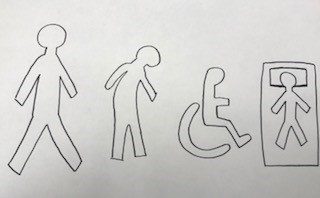ALS is a complicated and sinister illness. Over time it deteriorates the motor neurons in your brain and spinal cord, trapping its victims inside of their own bodies. Researchers are looking into how oxidative stress plays a role into causing this heartbreaking disease.
Oxidative stress is a result of the mitochondria, the organelle that makes energy in the cell, not being able to keep up with detoxifying the hazardous reactive products of oxygen. An increase in oxidative stress is considered to play a large role in the development of ALS.
When oxidative stress occurs it causes proteins to gather in the cytoplasm, which is where they are not suppose to be. This new aggregation of proteins combines with naturally occurring stress granules. For short periods of times, stress granules are beneficial. However, when present for long periods of time the beneficial effects turn into hazardous effects.
These harmful bundles in the cytoplasm can lead to misfolded proteins. The body has it’s own safety guard to protect against misfolded proteins. This safety guard is called the unfolded protein response (UPS).
https://www.nature.com/articles/nm0410-396
The unfolded protein response is the cell’s response to proteins that are made incorrectly. This response monitors the amount of proteins that are defective and when the number of defective proteins are too high it halts the production of proteins. This stop in protein making is done in order to correct the current mistakes. However, if this process takes to long the goal of the UPS switches form restoration to destruction causing the cells to initiate apoptosis, or cell death.
Therefore, increased and decreased amounts of UPS have been seen in ALS patients. With a low UPS there are many unfolded and misfolded proteins in the body not behaving as they should be, and with the upregulation of UPS many cells are dying.
Oxidative stress seems to be one of the culprits for initiating this cascade of negative effects and should continue to the a main point of focus in future research. With more research and understanding, hopefully one day a more curative treatment will be developed.
For more reading on the topic, please check out:
https://www.ncbi.nlm.nih.gov/pubmed/27150074
ALS and Oxidative Stress – A Possible Culprit
